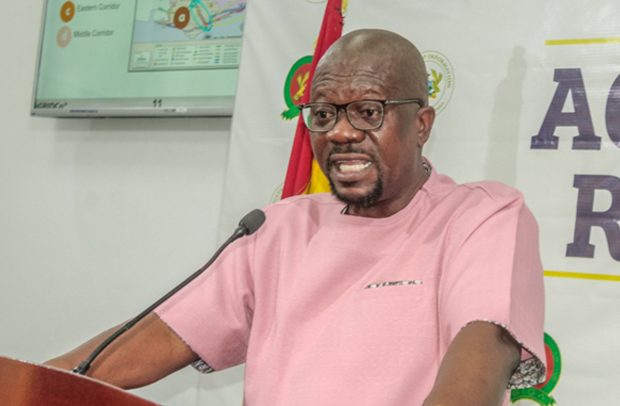Ing. Ebenezer Kofi Essienyi
THE GHANA Grid Company (GRIDCO) says government has given assurance of its readiness to pay the over GH¢2.7 billion debt owed it by the Electricity Company of Ghana (ECG) and the Northern Electricity Company (NEDCo) despite the challenges facing the power distributor.
At a press briefing on the state of GRIDCO at the Ministry of Information’s ‘State of the Agencies Report’ yesterday in Accra, the Chief Executive Officer of GRIDCO, Ing. Ebenezer Kofi Essienyi, said some challenges facing the two companies affected its revenue collection, thereby resulting in some debts.
“However, there has been massive improvement as ECG revenue collection has improved from collection which was below 20 percent to about 55 percent since 2020 after ECG and its partners embarked on several modalities to enhance its operations. There are a lot we can achieve together, like my chief said, if we are able to build a robust infrastructure; if ECG is able to plug its commercial losses; and if the collection rates goes up.”
He said, “This amount owed by the two entities is a legacy debt, and this is debt that has been accrued for over 20 years plus, since the inception of the relationship between these two companies started.”
Power Supply Chain
According to him, in the power value chain, GRIDCO, the transmitter carries the power to ECG, which is the distributor.
After they are served and the money is collected, they in turn send it to the value chain operators or the players but historically, there have been some challenges as ECG has made some commercial losses in terms of collection.
He also stated that apart from the challenges facing the company such as overgrowth, encroachment and galamsey operations, the company has also chalked some successes in its operations over the years.
These, he stated, included the provision of “65 substations in 2021 to 68 in 2022, upgrading the transformer capacity from 8,901.8 MVA to 9,642 MVA and also the improvement in transmission lines to 7200.5 kilometres.
He, however, appealed to Ghanaians to support the company especially, people living in areas where farmlands and properties were affected to bear with the company as it made efforts to extend its network to all parts of the country.
BY Ebenezer K. Amponsah


